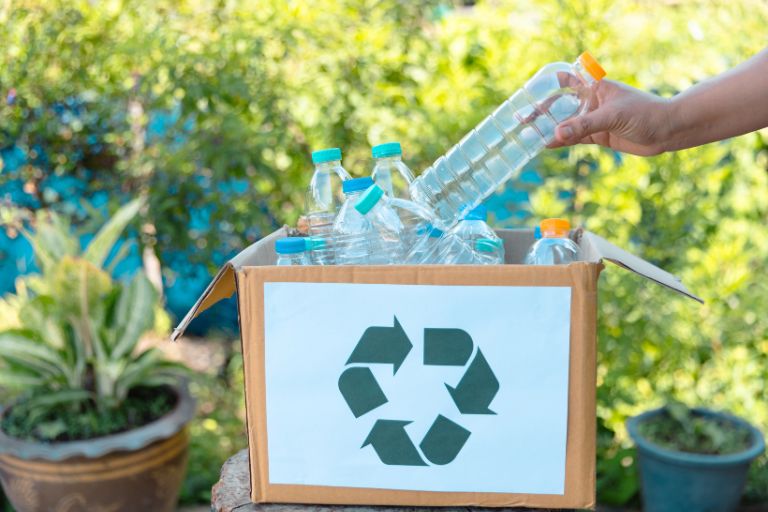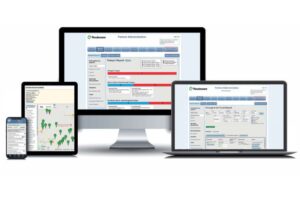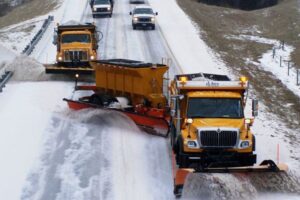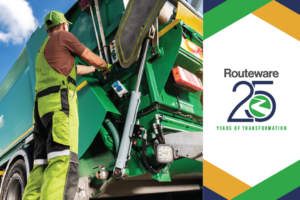Celebrating Earth Month: A Time to Rethink Plastic Waste
Each April, Earth Month—and Earth Day on April 22—reminds us of the urgent need to protect our planet and adopt more sustainable practices. One of the biggest environmental challenges we face today? Plastic waste. From oceans to landfills, its impact is everywhere. But with the right tools, education, and technology, we can change that.
In honor of Earth Month, we’re diving into actionable strategies and smart solutions to manage plastic waste more effectively—and how Routeware can help municipalities and organizations lead the charge toward a cleaner, greener future.
Plastic Waste Management Strategies
Managing plastic waste involves several key approaches:
- Reduction at Source: Minimizing the production and consumption of single-use plastics to decrease the volume of waste generated.
- Efficient Collection Systems: Implementing organized collection methods to prevent plastics from entering the environment.
- Public Education: Raising awareness about the importance of recycling and proper disposal methods.
- Advanced Recycling Technologies: Utilizing innovative methods to break down plastics into reusable materials. For instance, scientists have developed processes to convert common polyester plastics into valuable precursors for new products.
- Legislation and Policy: Enforcing regulations that limit plastic production and promote sustainable alternatives. International efforts are underway to establish treaties addressing the global plastic crisis.
Routeware’s Education Tools help municipalities educate residents on proper recycling habits, reducing contamination and increasing recycling efficiency.
How Is Plastic Waste Managed?
The management of plastic waste typically involves:
- Collection: Gathering plastic waste from residential, commercial, and industrial sources.
- Sorting: Separating plastics based on type and recyclability.
- Recycling: Processing sorted plastics into new products. However, challenges exist, as only a fraction of plastic containers and packaging are recycled.
- Energy Recovery: Converting non-recyclable plastics into energy through processes like incineration, though this method has environmental implications.
- Landfilling: Disposing of plastics in landfills, which is the least preferred option due to long decomposition times and potential environmental harm.
Routeware’s Notify & Inform platform ensures residents stay up to date on collection schedules and proper disposal methods, reducing waste contamination and missed pickups.
Waste Management Recycling Plastic Numbers
Understanding recycling symbols and numbers on plastic products is vital for proper disposal:
- #1 PET (Polyethylene Terephthalate): Commonly used for beverage bottles; widely recycled.
- #2 HDPE (High-Density Polyethylene): Found in milk jugs and detergent bottles; widely recycled.
- #3 PVC (Polyvinyl Chloride): Used in pipes and some packaging; less commonly recycled.
- #4 LDPE (Low-Density Polyethylene): Found in plastic bags and some wraps; recycling options vary.
- #5 PP (Polypropylene): Used in yogurt containers and straws; increasingly accepted for recycling.
- #6 PS (Polystyrene): Found in disposable cups and plates; challenging to recycle.
- #7 Other: Includes various plastics like polycarbonate; recycling depends on local facilities.
Routeware’s Tools for Enhanced Plastic Waste Management
Routeware provides innovative solutions to support effective plastic waste management:
- Education Tools: Empower communities with knowledge about recycling best practices and the importance of reducing plastic waste.
- Notify & Inform: Keep residents informed about collection schedules, recycling guidelines, and updates through timely notifications.
- Customer Portal: Offer a user-friendly platform for residents to manage waste services, access information, and schedule pickups, enhancing engagement and compliance.
- Calendars and Schedules: Provide digital calendars to remind residents of collection days, reducing missed pickups and improving overall efficiency.
- Service Requests: Enable residents to request special services (such as bulky waste, yard waste, or cart replacement), report issues, and provide feedback, fostering a collaborative approach to waste management.
By integrating these tools, municipalities and waste management organizations can streamline operations, increase recycling rates, and promote sustainable practices within their communities.
Meet Routeware at Industry Events
Want to see these solutions in action? Routeware will be exhibiting at the California Resource Recovery Association (CRRA) Conference (August 11-14, 2024), where industry leaders will discuss innovative recycling and waste reduction strategies.
Additionally, Routeware recently exhibited at the Resource Recovery Coalition of California Conference & Trade Show (April 1-4, 2024), engaging with sustainability experts on the latest advancements in waste management technology.
Join us at CRRA to explore how Routeware’s solutions can revolutionize your waste management strategies. Stay ahead of the curve and optimize plastic waste management with innovative, technology-driven solutions!
Want to talk to us before then? Book your free, 30-minute consultation today.





